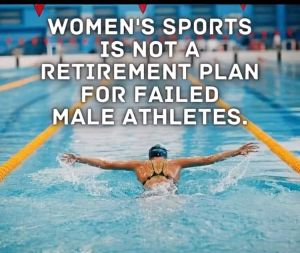Trans Olympics

Beyond the Binary: Finding the Gold Standard in Inclusive Athletics
The inclusion of transgender athletes in sports, particularly in women's categories, has been a fiercely debated topic, often polarized and fraught with misinformation. While concerns about fairness and competitive balance are valid and deserve exploration, resorting to binary solutions risks excluding or disadvantaging entire groups of athletes.
Perhaps instead of the stark lines of men's and women's categories, the answer lies in embracing a more nuanced approach – Trans Olympics. This concept envisions a dedicated competitive space for transgender athletes, fostering inclusion while addressing concerns about biological advantages in specific sports.
Let's be clear: the notion that Trans Olympics are essentially a retirement home for unsuccessful male athletes is not only insensitive but demonstrably false. Trans athletes train as hard and dedicate themselves with the same passion as their cisgender counterparts. To imply otherwise not only diminishes their achievements but perpetuates harmful stereotypes and prejudices.
The Trans Olympics proposal is not about creating a segregated or lesser tier of competition. It's about acknowledging the complexities of biological variations and creating a platform where everyone can compete within a fair and equitable framework. It's about celebrating the diversity of athletic talent and providing opportunities for all athletes to pursue their dreams on the world stage.
Implementing this concept could involve carefully designed qualifying criteria and sport-specific regulations that take into account relevant biological factors. This would require ongoing research and collaboration between sporting bodies, athletes, and scientists to ensure fairness and inclusivity.
Of course, the Trans Olympics model wouldn't be without its challenges. Determining eligibility criteria and navigating potential biases within sporting bodies would require careful consideration and sensitivity. However, these challenges pale in comparison to the current situation where entire communities of athletes are caught in a crossfire of misinformation and discriminatory rhetoric.
Ultimately, the goal of any sporting event is to showcase human potential and athletic excellence. Excluding talented individuals based solely on their gender identity or assigned sex at birth contradicts the very spirit of sportsmanship and fairness. The Trans Olympics model, while presenting challenges, offers a potential path towards a more inclusive and equitable future for athletics, where every athlete, regardless of gender identity, can step onto the world stage and reach for the gold.
This approach avoids divisive language and focuses on creating a solution that is inclusive and fair for all athletes. It emphasizes the importance of acknowledging biological variations while still providing opportunities for everyone to compete at the highest level. Remember, the goal is to inspire and celebrate athletic excellence, and the Trans Olympics model offers a potential way to achieve that for all athletes, regardless of their gender identity.
